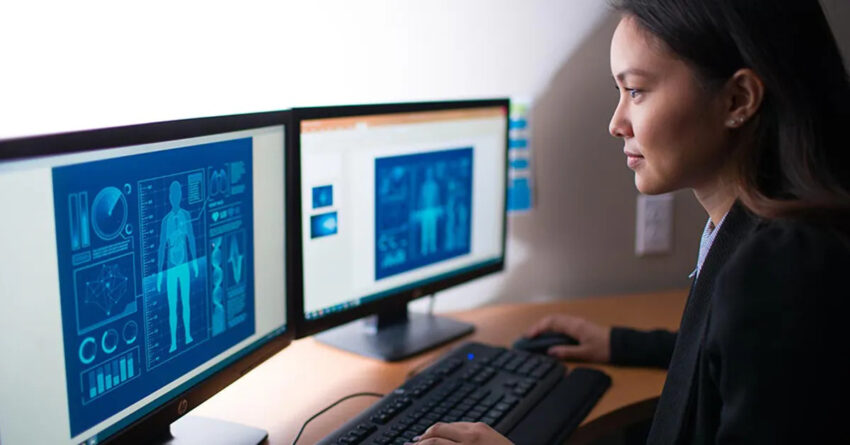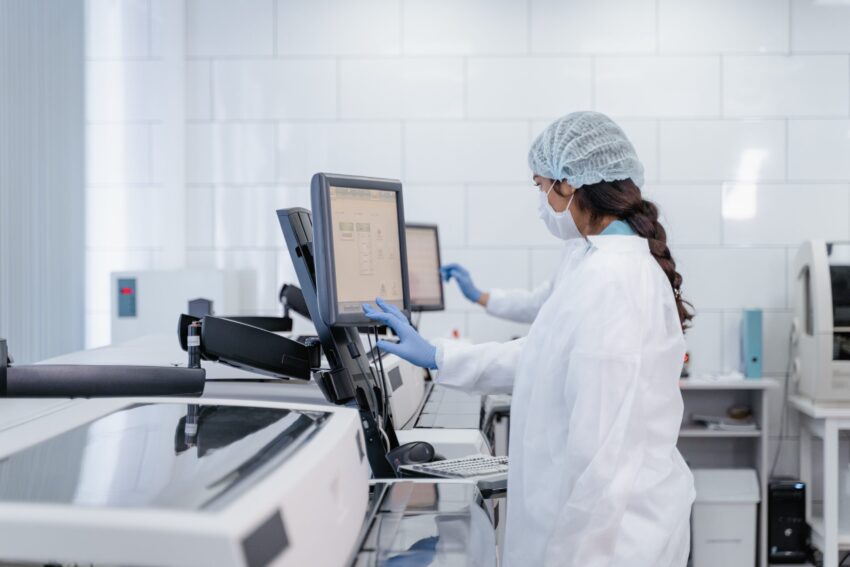
05 Apr How AI is Revolutionizing Healthcare
The healthcare industry has been slow to adopt new technologies and trends. Even today, the majority of medical facilities still use paper charts to record patient information and perform diagnoses. However, that’s starting to change as more hospitals embrace artificial intelligence (AI) systems. According to a recent report by Accenture, AI will play an important role in helping providers better manage chronic conditions. And reduce readmission rates for patients with kidney disease or heart failure by 20% by 2030. The content is brought to you by https://technochatnews.com/
AI is changing healthcare

Image source: Google.com
AI is changing healthcare in many ways. It’s changing the way we diagnose and treat disease, and communicate with our doctors. Interact with our medical devices, and even access and share personal health data. The following are just a few examples of how AI is revolutionizing healthcare:
- Diagnostics: AI-powered diagnostic tools are becoming more prevalent in hospitals around the world as they offer better accuracy than previous methods of detection. They’re able to analyze images, voice recordings, or other types of data more quickly than humans can — all while improving precision by over 90%.
- Treatment Plans: AI has been shown to improve patient outcomes by recommending personalized treatment plans. Based on each individual’s needs rather than following a general protocol based solely on age or gender (which may not account for all factors).
- Communication: Many patients find it difficult to talk about their health concerns with their doctors because they don’t want them to worry unnecessarily or seem ungrateful when they express gratitude instead. However, this communication gap can be eliminated using technology. Like virtual reality headsets that allow you to see yourself through another person’s eyes. So your doctor understands exactly what kind of situation he/she dealing with before even meeting face-to-face!
AI-Assisted Diagnosis
AI can be used to assist doctors in making diagnoses by identifying patterns in patient data that may indicate a disease or illness. For example, an AI system might be trained to scan through thousands of medical records and compare them against one another. It could then identify commonalities among those who have been diagnosed with certain conditions. Like heart disease or diabetes, and compare them with people who haven’t been diagnosed yet. But show similar patterns (such as age, sex, and medical history). This allows doctors to make more informed decisions about what tests they need to perform on their patients while saving time–and money! Discover: Securing Critical Data with Cloud Storage Solutions
AI also has predictive power when it comes to outcomes based on patient data: A machine learning model may be able to predict with high probability whether a given individual will develop cancer within five years by analyzing genetic information collected during routine visits at their doctor’s office; this would allow physicians time prepare for treatment before any symptoms appear!
Preventing Medical Errors
AI can help prevent medical errors.
AI is being used to predict the likelihood that a patient will develop a serious complication after undergoing surgery. Which allows doctors to take preventive measures before it’s too late. Some hospitals are even using AI to monitor their patient’s pulse and blood pressure after surgery. Allowing them to detect problems early on and intervene before things escalate into an emergency.
AI can also help doctors make better decisions in critical situations where every second counts. Like when treating trauma victims or those suffering from heart attacks or strokes. In these scenarios, having access to real-time data about symptoms like chest pain or difficulty breathing can mean the difference between life and death for patients. However, traditional methods of gathering this kind of information often involve asking questions verbally (which may not work well). Or using paper forms (which require time-consuming manual entry). AI technology enables physicians at hospitals like Cedars-Sinai Medical Center in Los Angeles County California use electronic medical records systems tied directly into electronic physician order entry systems so they can quickly pull up information about previous encounters with similar patients as well as medication allergies without having prior knowledge about what happened previously!
Disease Risk Assessment
AI can help doctors identify patients at risk of disease. Determine the best treatment for each patient and when to treat them, as well as where they should be treated.
A study by researchers at Stanford University found that artificial intelligence was better than doctors at predicting heart attacks and strokes in high-risk patients. The researchers used machine learning algorithms to analyze data from more than 10 million electronic health records (EHRs) from around 100 hospitals across US states between 2011 and 2014. They then tested their model against a large dataset containing information about more than 300,000 people. Who had been admitted to the hospital within 30 days due to a cardiovascular event? Such as heart attack or stroke over five years from 2013-2017 to determine whether its predictions were accurate enough for clinical use by doctors treating patients with these conditions today.”This work shows how AI can be used alongside existing techniques like EHRs or blood tests,” said lead author Dr. Michael J Goldfarb (MD), assistant professor at Stanford University School Medicine & Lucile Packard Children’s Hospital Palo Alto Division Director Center Genomic Medicine & Applied Biomedical Informatics Program Center Translational Science Institute (TRI).
Increasing Treatment Accuracy
AI can help doctors make better treatment decisions.
For example, AI can be used to identify and analyze large amounts of patient data quickly. This allows doctors to examine a patient’s medical history more thoroughly. And make more informed decisions about their treatment plan moving forward. By enhancing the accuracy of diagnosis through machine learning algorithms. AI improves the quality of care that patients receive from their physicians by reducing errors associated with human error or bias.
Conclusion
AI has the potential to revolutionize healthcare by improving diagnosis accuracy, reducing medical errors. And helping doctors make better treatment decisions for their patients. AI can also help improve patient care by collecting and analyzing data from medical records. As well as data collected from sensors worn by patients at home or in hospital settings.


No Comments